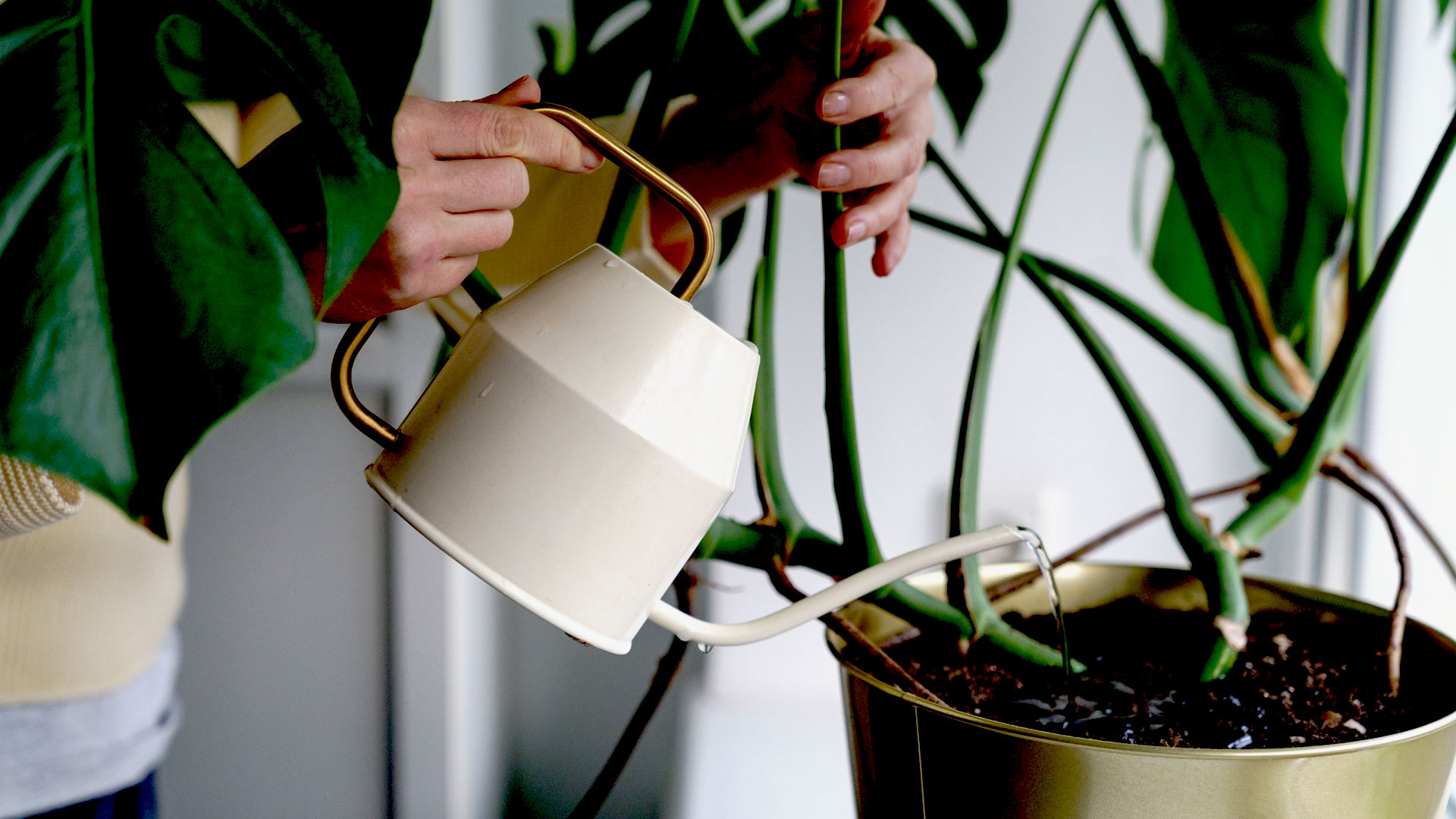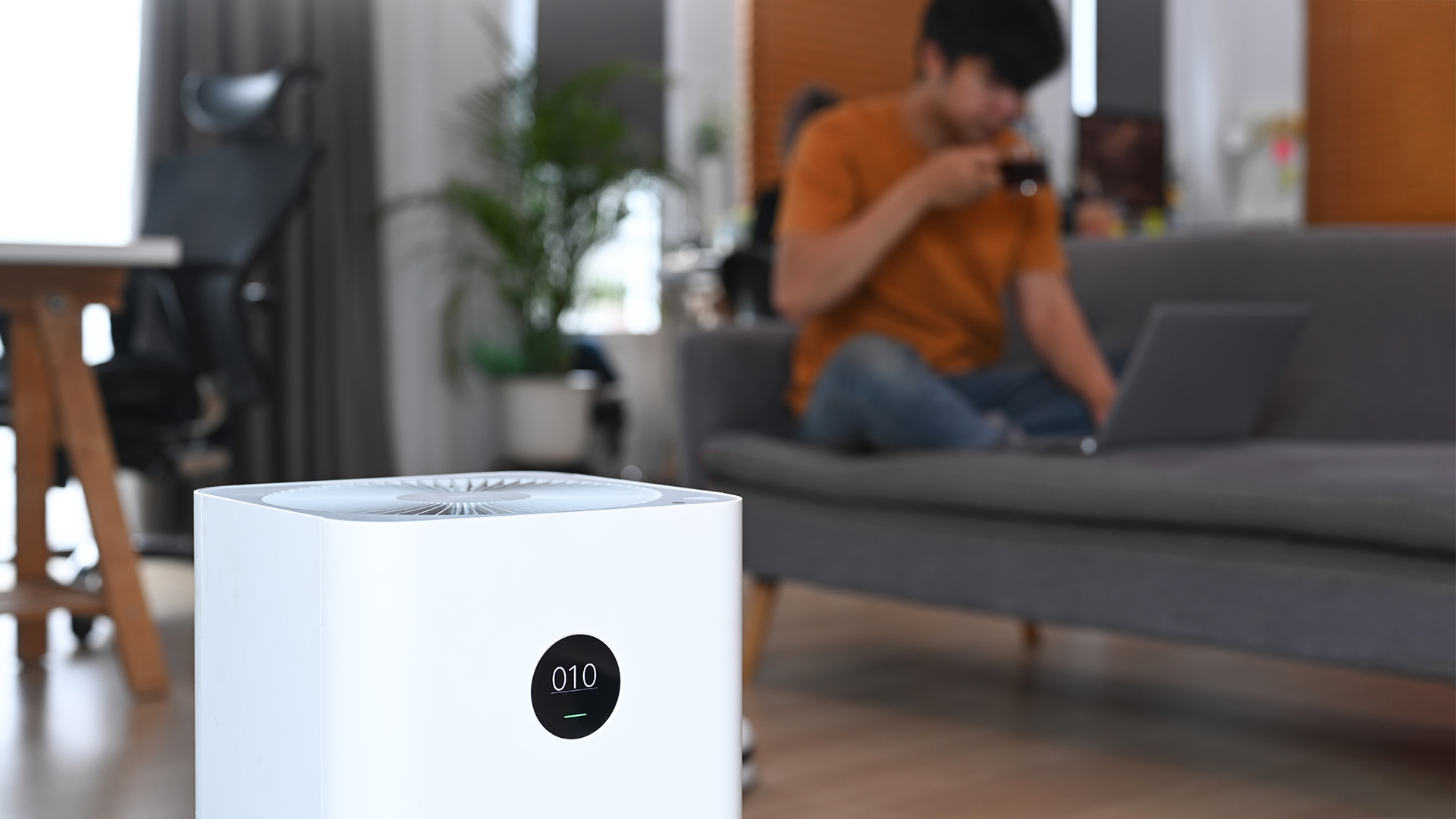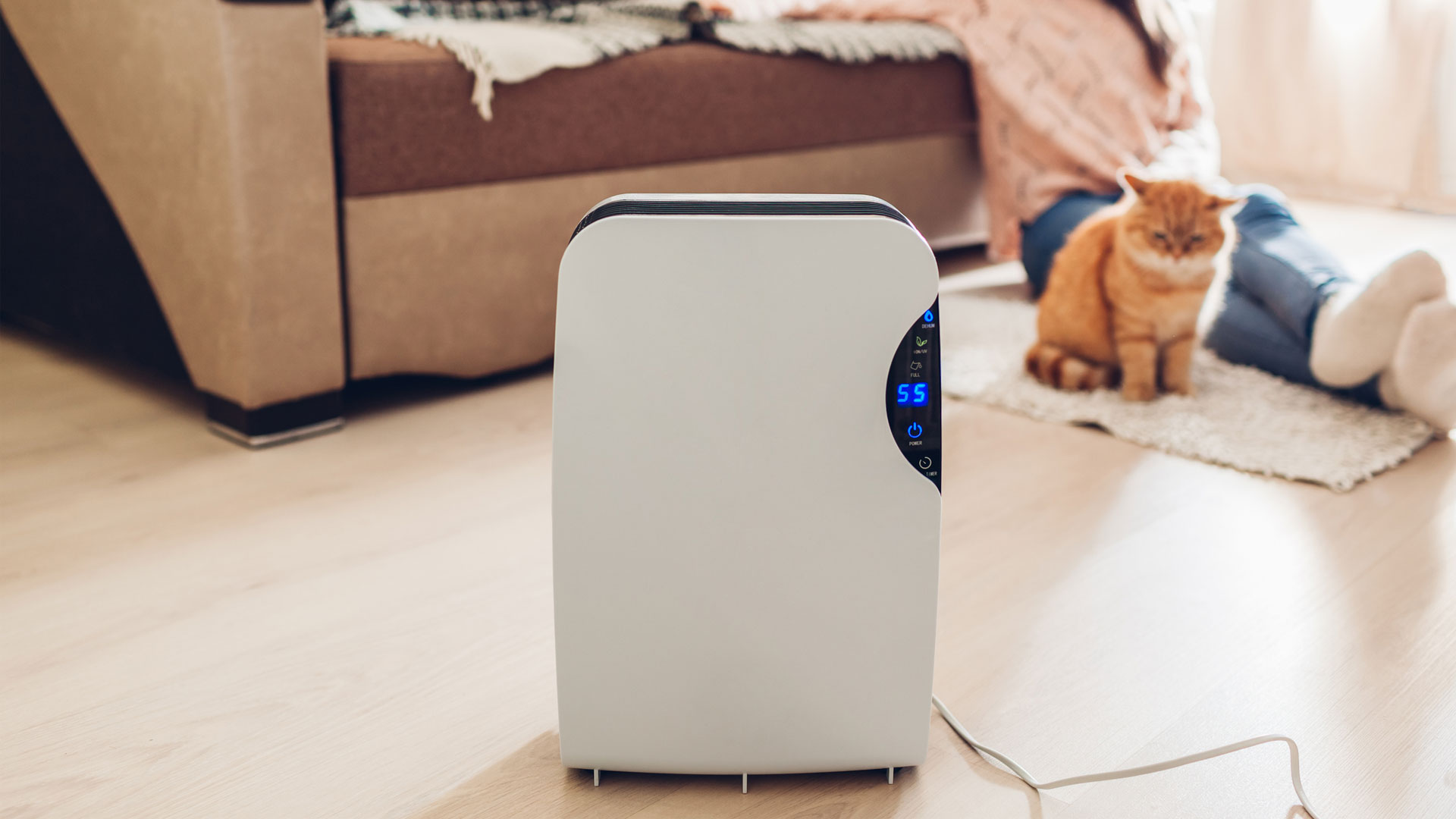Is dehumidifier water good for plants?
In order to to reuse and recycle gray water at home, we're asking 'is dehumidifier water good for plants?'

It's important to recycle water where we can, but is dehumidifier water good for plants, and is it a viable way to be more sustainable at home? That's the question we'll be delving into in a bid to reduce our clean-water usage. To check out these valuable air quality appliances, head to our guide on the best dehumidifiers for more.
According to statistics from the US Environmental Protection Agency, the average American family uses more than 300 gallons of water at home per day. This is equivalent to taking seven baths. With the temperatures dropping and the increase in humidity levels in our homes, is it possible that some dehumidifiers could collect water that's safe and clean enough to reuse around our home?
Along with whether dehumidifier water is good for plants, we'll be answering if the water collected by these appliances can be used elsewhere around the home and whether it's the same as distilled water. You can also find other useful articles at Live Science that ask: are dehumidifiers good for asthma and can dehumidifiers help with snoring.
Is dehumidifier water good for plants?
According to Water Management Specialist Janet Manning, dehumidifier water – which is a form of gray water (used water in your house that normally goes down the drain) – can be good for indoor and outdoor plants if the air inside your home is clean, as it's a bit like using rainwater. Manning told Live Science: "If you're in a perfectly clean home, where the dehumidifier is only collecting water vapor from around the house, then the collected water can certainly be good for plants."
However, if you have plants inside your home that are suffering from a fungal disease, watering your plants with the gray water might not be such a good idea. Manning told us: "It's possible that some of the fungal spores could be floating around in the air and as the air is drawn through the dehumidifier, there's a chance you may well be collecting those concentrated spores in the water."
It's also unwise to use dehumidifier water on any plants you intend to eat. As stated by the Office for Science and Society, yes, dehumidifier water might be 'very clean water', but it's only as clean as your dehumidifier. For advice on this particular topic, visit our guide on how to clean a dehumidifier.

Dehumidifiers work by sucking water vapor from the air, condensing it through its exposed cooling coils and collecting it in a reservoir. If the collected water sits in the dehumidifier tank for enough time, unfortunately it can provide a thriving environment for bacteria and mold to grow.
So when it comes to reusing dehumidifier water, keep in mind that it's safe to use on your indoor and outdoor plants, but not plants you are growing to eat, including those in your herb garden.
- Related: What is relative humidity?
Is dehumidifier water good for plants: is it good for anything?
It's not just general indoor or outdoor house plants that dehumidifier water can be brilliant for. As Frank Marken from the Water Innovation Research Centre (WIRC) explained to Live Science: "Water from the air is great, as it's comparable to rainwater and it's considered soft water, rather than hard."
The softness or hardness of water can be determined by the mineral content of magnesium and calcium in the liquid. In the US, around 85% of the country has hard water, which means it contains high levels of these minerals, whereas those who have a supply of soft water have low levels of the minerals per million. Both hard and soft water have their pros and cons. However, according to the World Health Organisation (WHO), soft water has 'several aesthetically beneficial effects inside the home' which includes reduced levels of scaling in pipes, fixtures and water heaters and improving laundry and washing characteristics.

So instead of using water softeners to strip the water of its mineral content to make it 'beneficial' for use inside the home, you could put your dehumidifier water to good use in a whole host of ways. This includes:
- Ironing
- Washing clothes
- Cleaning your windows
- Cleaning furniture
- Mopping the floor
- Topping up your car window wipers
However, there's one thing Marken advises against using dehumidifier water for and that's drinking it.
Marken said: "The idea of drinking it is dangerous. Our tissues and cells are delicately balanced and salt-free water can disturb this balance."
Is dehumidifier water good for plants: is dehumidifier water the same as distilled water?
The simple answer to this question is: no. As Marken explained: "What we call 'distilled water' is usually demineralized. It can be very pure. Dehumidifier water, however, will be more contaminated with things that float around in air or things that like to grow in dehumidifiers."
Distilled water is water that's been boiled, evaporated and re-condensed. This is a process that strips the everyday minerals present in ordinary tap water. This includes minerals like calcium and magnesium along with other inorganic compounds. While distilled water is perfectly safe to drink, it's these minerals that give our everyday drinking water its distinctive taste.
However, according to the WHO, drinking distilled water can have some adverse impacts. This includes:
- The water tasting flat – which could lead to people drinking less water
- A decrease in the amount of calcium and magnesium we are ingesting
- An increase in urine output which could cause an imbalance with these minerals lost from your body
Some researchers from the University of Illinois Urbana-Champaign believe drinking tap water is 'marginally better' for you due to the natural minerals found in it, which help you replenish your body with the minerals it loses as you go to the toilet or sweat.
Sign up for the Live Science daily newsletter now
Get the world’s most fascinating discoveries delivered straight to your inbox.
Becks is a freelance journalist and writer writing for a range of titles including Stylist, The Independent and LiveScience covering lifestyle topics such as health and fitness, homes and food. She also ghostwrites for a number of Physiotherapists and Osteopaths. When she’s not reading or writing, you’ll find her in the gym, learning new techniques and perfecting her form.











